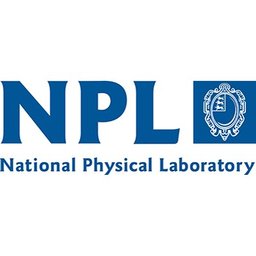Phd Vacancy Development Of Novel Delivery Platforms And Spatially Resolved Protocols
Job Description
The aim of this project is to optimise the delivery of radionuclides for cancer treatment, using state of the art mass spectrometry approaches at King's College London, National Physical Laboratory and the UK National Ion Beam Centre. A key requirement for the optimisation of cancer treatments is to be able to selectively kill cancer cells, sparing healthy tissue. In recent years, there has been unprecedented development in therapeutic radionuclides for cancer treatment.
For example, alpha-emitting radionuclides are undergoing clinical trials and Auger-emitting radionuclides are showing great promise for therapeutic applications. These radionuclides have a shorter range in biological tissues than the currently used beta-emitting radionuclides. This makes them highly effective at causing localised damage to cancer cells, and sparing healthy tissue, an exciting prospect for cancer treatment. However, a barrier to adopting radiopharmaceuticals is that optimisation of delivery mechanisms are needed for them to realise their full therapeutic potential. Specifically, it is desirable to tune their delivery to target key cancer cell organelles, such as the nucleus and mitochondria. Gaining an understanding of the distribution and kinetics of radionuclides at the sub-cellular level would enable improved treatment efficiency and patient outcome, by reducing damage to healthy tissues and minimising side-effects. The aim of this project is therefore to develop novel analytical methods to probe the sub-cellular location of radionuclides and use them to optimise the performance of state-of-the-art radionuclide delivery vectors.
The student will be trained in radiolabelling, mass spectrometry imaging, sub-cellular sampling and conjugate formation with state-of-the-art radionuclide delivery vectors. The student will have access to world class facilities at King's College London (Guy's Hospital), National Physical Laboratory (Teddington) and UK National Ion Beam Centre (Guildford). This is an experimental project that will involve curiosity, critical thinking, problem solving and excellent communication skills to work across the discipline boundaries of physics, chemistry and biology.
The candidates should have a Bachelor's degree with 2:1 honours in an appropriate subject. A 2:2 degree may be considered only where applicants also offer a Master's degree with Merit or above. The candidates should meet the English language requirements at Language Band D.
Link to apply:
https://www.kcl.ac.uk/study-legacy/funding/development-of-novel-delivery-platforms-and-spatially-resolved-protocols-for-cellular-imaging-of-prospective-therapeutic-radiopharmaceuticalsThe National Physical Laboratory (NPL) is a world-leading centre of excellence that provides cutting-edge measurement science, engineering and technology to underpin prosperity and quality of life in the UK.
NPL and DSIT have strong commitments to diversity and equality of opportunity, and welcome applications from candidates irrespective of their background, gender, race, sexual orientation, religion, or age, providing they meet the required criteria. Applications from women, disabled and black, Asian and minority ethnic candidates in particular are encouraged. All disabled candidates (as defined by the Equality Act 2010) who satisfy the minimum criteria for the role will be guaranteed an interview under the Disability Confident Scheme.
At NPL, we believe our success is a result of the diversity and talent of our people. We strive to nurture and respect individuals to ensure everyone feels valued by treating everyone on the basis of their own individual merits and abilities regardless of their own or perceived identity, as part of our commitment to diversity & inclusion, we hold memberships and accreditations to ensure we're creating an environment where all our colleagues feel supported and welcome, please see our Diversity & Inclusion page.
We are committed to the health and well-being of our employees. Flexible working and social activities are embedded in our culture to create a positive work-life balance, along with a broad range of benefits. Our values are at the heart of what we do, and they shape the way we interact, develop our people and celebrate success.
To ensure everyone has an equal chance, we're always willing to make reasonable adjustments to the recruitment process. If you would like to discuss, please contact us.
MNCJobs.co.uk will not be responsible for any payment made to a third-party. All Terms of Use are applicable.
Job Detail
-
Job IdJD3369055
-
IndustryNot mentioned
-
Total Positions1
-
Job Type:Full Time
-
Salary:Not mentioned
-
Employment StatusPermanent
-
Job LocationTeddington, ENG, GB, United Kingdom
-
EducationNot mentioned



